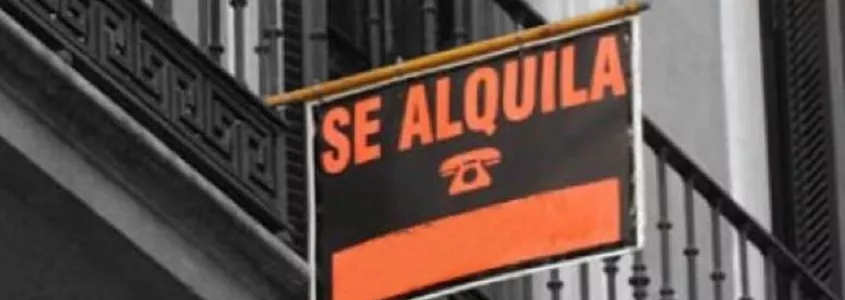
Table of contents
Legal measures in relation to the renting of dwellings and the current crisis situation derived from the Covid 19 or Coronavirus. Our Lawyers will help you!
The Royal Decree Law 11/2020 in force since 31 March, establishes the following measures in relation to housing rental:
a) Suspension of evictions for six months.
At the moment it is NOT possible to file and process an eviction for non-payment, until the suspension of all terms and procedural deadlines set by the RDLEY is lifted, which in itself means a current loss for the landlord, who will only receive help from the State if he also demonstrates the situation of vulnerability, once the Court notifies the Social Services, which are not given a specific deadline.
When this state of alarm is over, a lawsuit can be filed against tenants who do not pay the rent, but this will not be effective if the tenant requests and proves to the Social Services the same situation of "vulnerability", something that already appears in the current art. 441 of the LEC. It can also be requested by the landlord who is in the same conditions, but the problem for the latter is that up to six months will have passed before the eviction process takes place and in the meantime he has to accept, if necessary, the non-payment of the rent, without any kind of help whatsoever.
b) Extension of the lease for six months.
Once the state of alarm has ended, the tenants can apply within two months for an extension of the lease, in the event that the expiry date is less, an extension of six more months and the contract will continue under the same conditions, without the possibility of revising the rent, so it is not possible to resort to eviction due to the "expiry of the term".

Consult our lawyers, experts in Real Estate Law. We will give you a solution
c) Moratorium on payment of rent
The conditions of "vulnerability" are established so that tenants can request the landlord to delay payment.
What is not foreseen is that if the tenant who receives the aid does not use it to pay the rent, this would mean a serious loss for the landlord, without prejudice to the sanctions that the former may receive from the administration. And also those who do not ask for aid but do not pay the rent.
e) Companies or individuals with more than 10 properties.
In short, these types of companies (legal entities and individuals) that have more than 10 urban properties, excluding garages and storage rooms, or a surface area of more than 1,500 m2, will only be able to charge 50% of the maximum rent during the first four months after the end of the "alarm" situation, always by official determination, unless there is an agreement between the parties. Of course, although it may seem correct, many of them are not in a position to halve the rented flats, so they should also have, at least, a special tax discount in the profit and loss statement of each year. Many of these entities are so-called "vulture funds" and I would very much like someone responsible to indicate what they consider to be such a term, because (I say so myself) most of them are funds that invest so that many professionals and normal workers can enjoy a pension when they retire. I could say some specific cases, but it is not up to me to make that clarification, but it is something that the Administration should always inform the citizen in concrete terms, in order to avoid the mistake when the Government itself or the media always refer to them as "capitalists", although they do not say the conditions and destination of these vulture funds.
f) Definition of the situation of vulnerability and accreditation.
Here it is already explained what is known as "vulnerability", the necessary conditions to obtain the aid contemplated in the previous and subsequent articles, which, in general, seem correct, but if the same situation lasts for a long time (longer than that foreseen in the RDLEY), the problem is for the landlord, who may also have scarce economic means and that the rent serves as a complement and cannot claim it in the eviction process until after six months have elapsed.
g) Deferment of payment by agreement with the landlord.
A deferment can be requested from the landlord, accrediting the situation of vulnerability contemplated in the previous precepts, but if there is a refusal, it is possible to resort to State aid, as indicated in the following precept.
h) Payment by the State when the tenant is in a situation of "vulnerability".
This is an official loan with a maximum duration of 14 years, not exceeding six months of rent, but also proving that this rental housing assistance is correct, with repayment in 6 years and exceptionally up to 10 years.
¡) Lack of rules on leasing of premises
At the moment there is no answer or measure for the leasing of premises. It is possible that it will be regulated or that lawyers will have to resort to jurisprudential or legal interpretations such as the "rebus sic stantibus" clause.
In any case, contact our Law Firm in Madrid, who will advise you on any issue related to your rental of housing or premises in the crisis situation caused by the Coronavirus.
Call us now to our emergency phone number 620151515

"Anywhere in Spain"
With our online appointment system you will have immediate advice without the need for face-to-face visits or travel.
One of our lawyers specialized in your area of interest will contact you to formalize an appointment and make your consultation by video call.

Add new comment